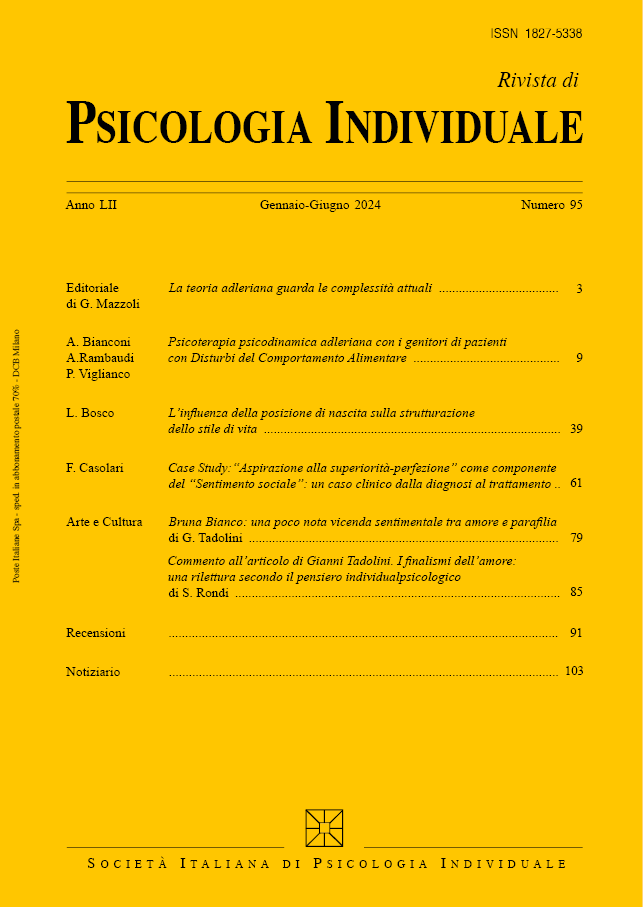THE EQUIVALENCE OF THE PRESYMBOLIC MEANINGS IN DREAMS AND EARLY RECOLLECTIONS: A PROSPECTIC VIEW OF LIFESTYLE
Keywords:
implicit and esplicit memory, dream, early recollections, narrazione, sogno, memoria implicita, memoria procedurale, interpretazione, memoria esplicita, memoria dichiarativa, primi ricordi, significazione, comprensioneAbstract
In this paper we propose that there could be an equivalence of the symbolic meanings of dreams and early recollections: they both take their own essence in the presymbolic individual experience. Dreams and early recollections allow the symbolic transformation of preverbal and presymbolic experiences into something that can be “said,” expressed, and accessed by consciousness. These ideas agree with the recent psychoanalytic developments about the role of the implicit memory in the structuration of the personality. According to Mancia, implicit memory (at variance with explicit, declarative memory) is non-conscious and can not be verbalized. Affective and emotional memory, that can be considered a dimension of implicit memory, implied the existence of an unconscious nucleus of the self, an unrepressed unconscious, which is completely different from the “classical” re-pressed unconscious described in Freud's work.
The unrepressed unconscious contains presymbolic experiences, be-longing to the primary mother infant relations, that cannot be recalled and expressed in words, because their dimension is, “simply,” not verbal. Affective and emotional, implicit memory, although non-conscious, influences all our lifestile and emerges in nonverbal communication






